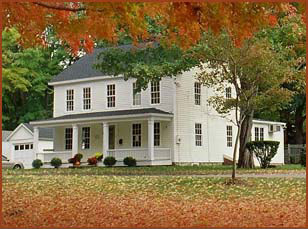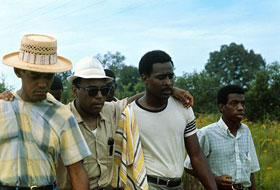June 2017
After the President’s inspiring speech, Soviet leaders were left to wonder: Was Kennedy a peacemaker or aggressor?
Anticipating a West German tour that on June 26, 1963, would take him to Berlin, President John F. Kennedy expressed worry. Charles de Gaulle had recently gone to Germany and won wide acclaim there. Kennedy didn’t want to just follow in the French presidents footsteps.
"My money's on you, Mr. President," the ambassador to Germany, Walter C. Dowling, reassured him.
"We’ll see, we’ll see, we’ll see," Kennedy replied.
. . . Anything you say can and will be used against you in a court of law. That mantra, a Supreme Court justice once estimated, is familiar to two billion people around the world, mostly from its regular recitation in television crime dramas. Of all the rights guaranteed under our Constitution, no other is pointed out as often or as clearly. Why?

3 Liberty Street Clinton, CT 06413 http://www.3liberty.com/history.html

(Bettmann/Corbis)
Hit the dirt! The cry came 51 years ago today, at 4:15 p.m. on June 6, 1966, just before three shotgun blasts exploded from the bushes along Highway 51 near Hernando, Mississippi. Two of the rounds found their target: James Meredith, a 32-year-old black law student who had the day before embarked on a protest march from Memphis to Jackson, Mississippi. Forty years ago today, as Meredith fell to his knees on the ground, the civil rights movement found itself at a turning point.
